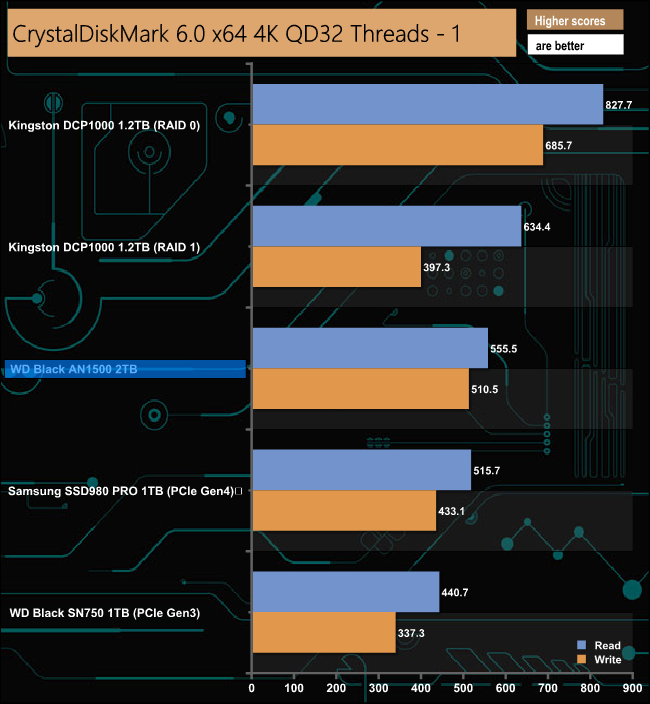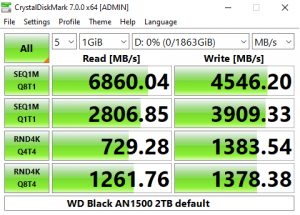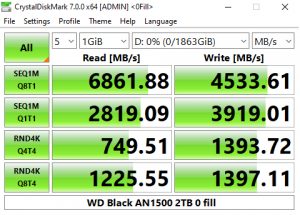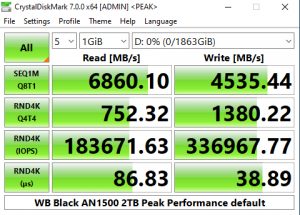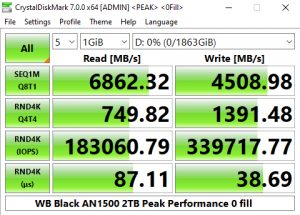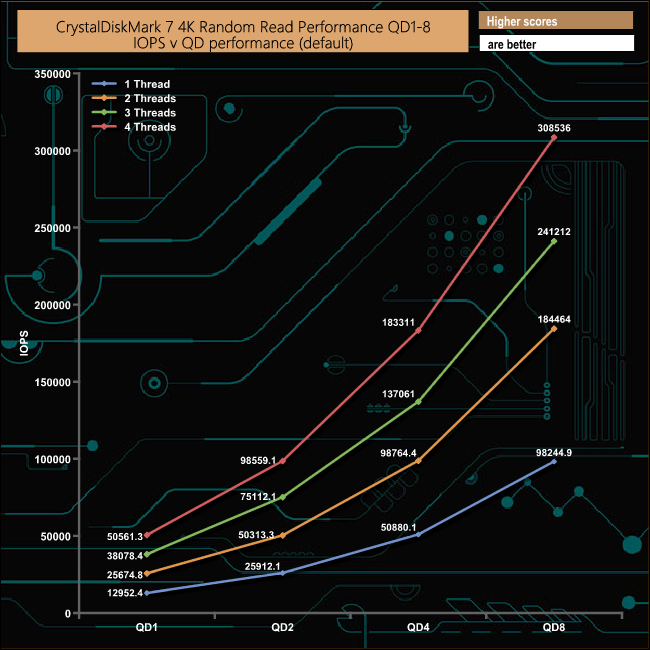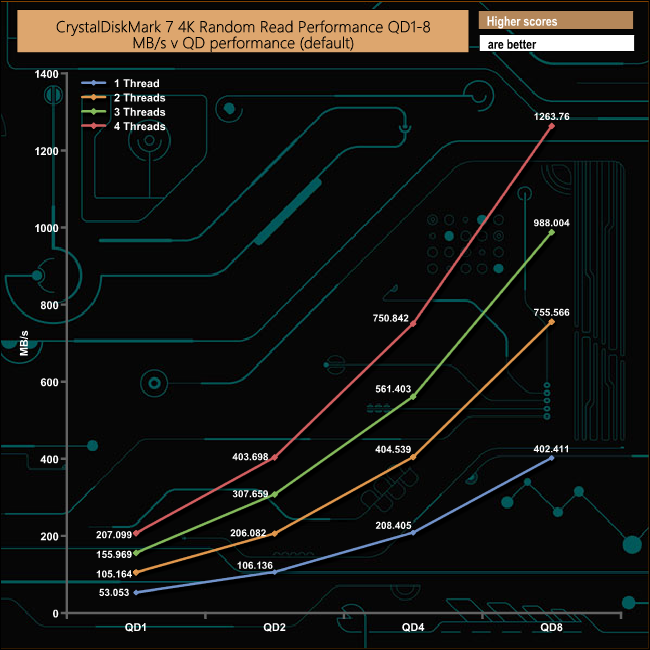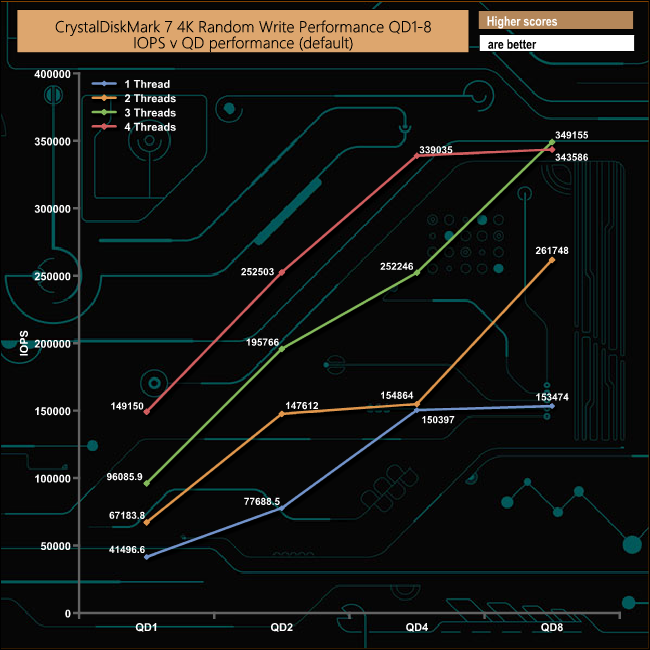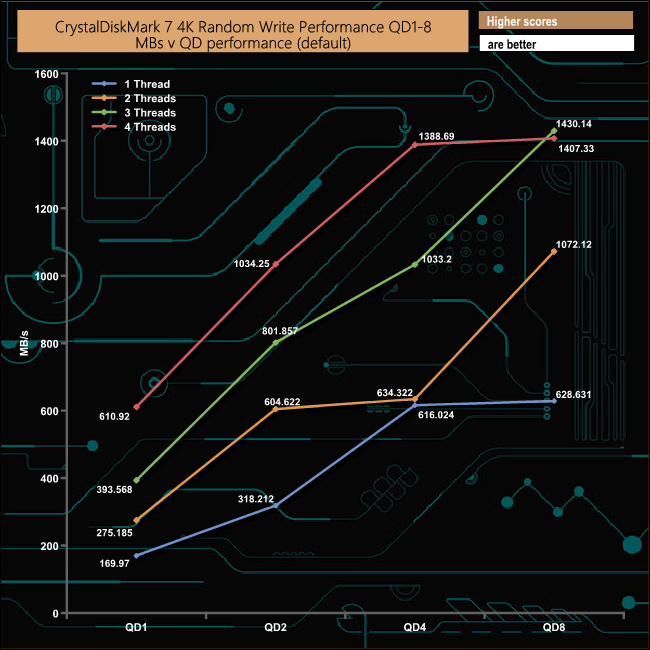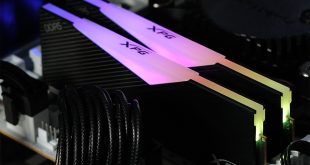CrystalDiskMark is a useful benchmark to measure theoretical performance levels of hard drives and SSDs. We are using versions 6.0 & 7.0
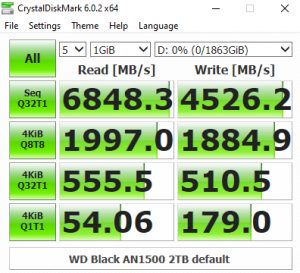
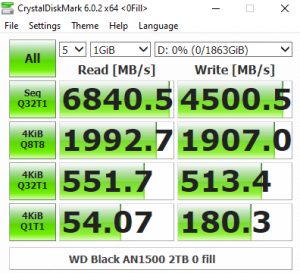
WD's AN1500 outperforms Samsung's PCIe 4.0 drive, the SSD980 PRO in CrystalDiskMark's QD32 test in both read and write performance. Looking at the benchmark result screens it appears that the in-house WD controller doesn't have a preference in the data it's being asked to handle.
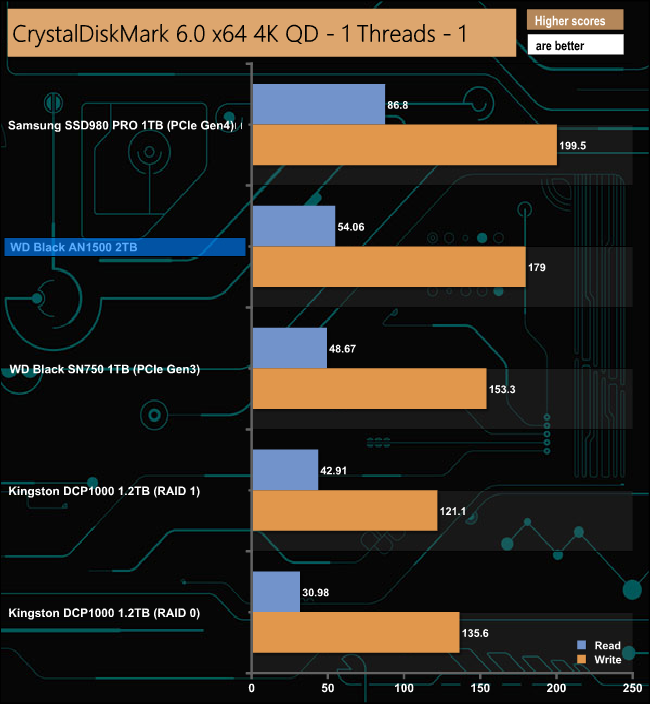
At a queue depth of one, the position of the drives changes with the Samsung SSD980 PRO faster for read and writes than the AN1500.
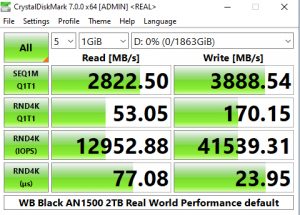
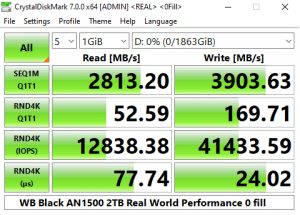
The latest version of CrystalDiskMark, version 7, includes a couple of profiles that can be used for testing – Peak Performance and Real World. The result screens for these two profiles not only display MB/s results but also IOPS and latency.
Looking at the Peak Performance results for Sequential read/write performance we could confirm both official Sequential performance figures. The drive is rated up to 6,500MB/s for reads, with the tested drive producing 6,860MB/s and up to 4,100MB/s for writes, with a test result of 4,535MB/s.
When it comes to random performance the drive is rated as up to 780,000 IOPS for reads and up to 700,000 IOPS for writes but as you can see from the Peak Performance results, the best we saw from the drive in the CDM 7 benchmark was 183,671 IOPS for reads and 336,967 IOPS for writes.
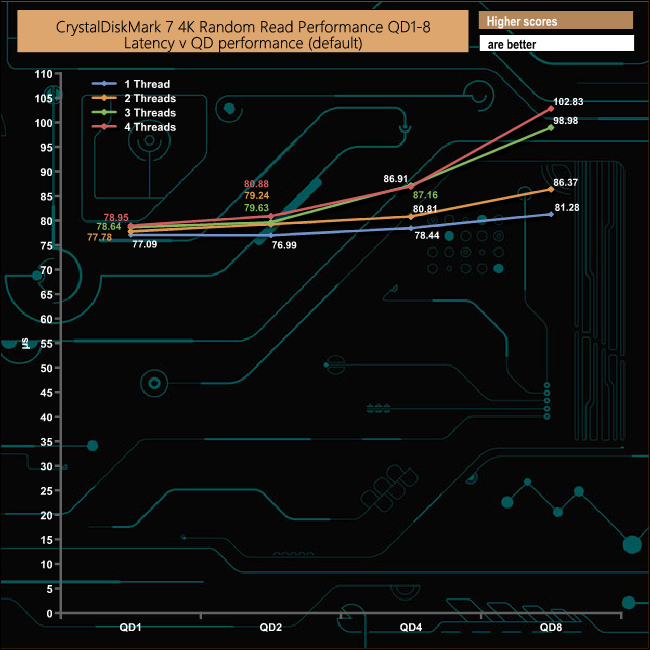
We also used CrystalDiskMark 7 to test the drive at lower queue depths (where most of the everyday workloads occur) using 1 to 4 threads. The read performance climbs smoothly through each of the tested queue depths.
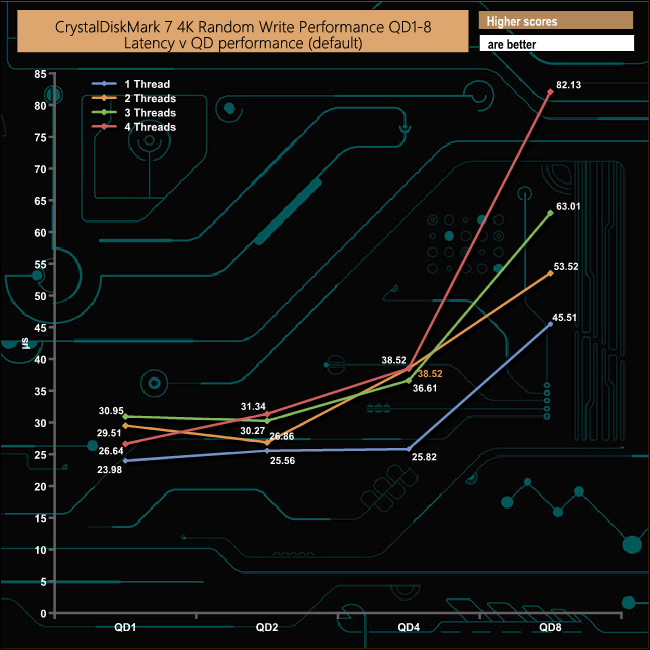
In the write tests, the best overall performance comes from the 3-threaded tests which climbs pretty smothly in performance as the queue depth deepens. Both the single threaded and 4-threaded performance begins to level off at the QD4 mark, while at a QD of 2 the performance looks like its beginning to level off only to increase again from QD4 to QD8.
 KitGuru KitGuru.net – Tech News | Hardware News | Hardware Reviews | IOS | Mobile | Gaming | Graphics Cards
KitGuru KitGuru.net – Tech News | Hardware News | Hardware Reviews | IOS | Mobile | Gaming | Graphics Cards


